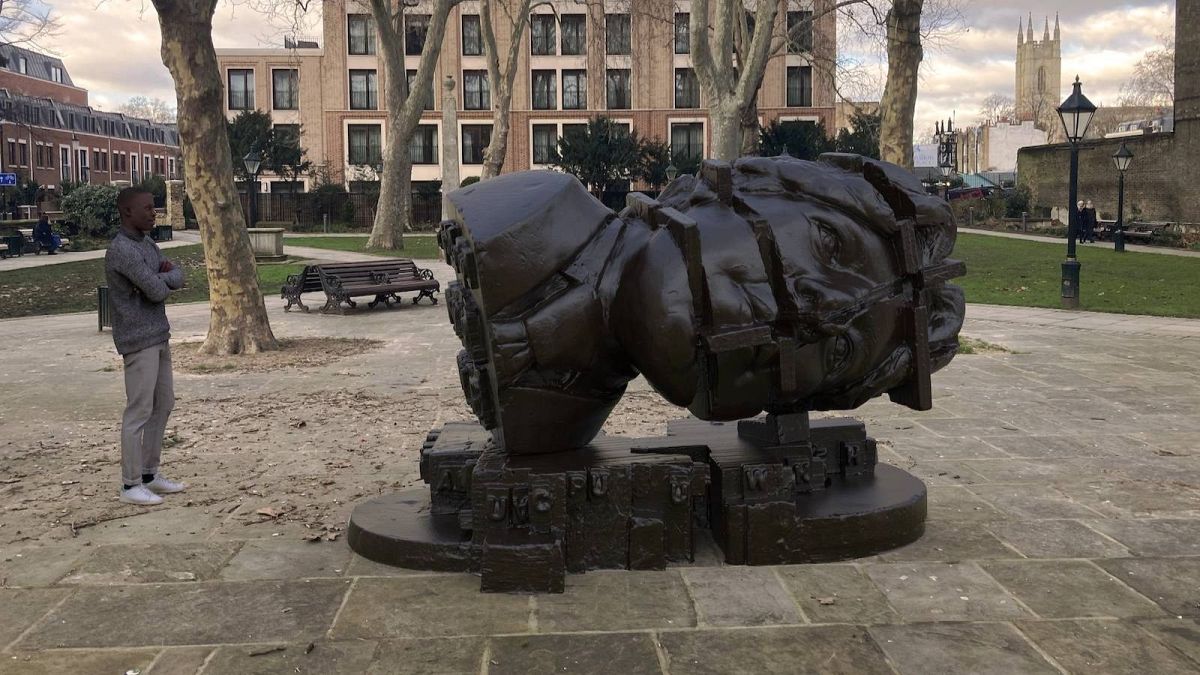The conceptual sculpture of Oscar Wilde, designed by late Scottish artist Sir Eduardo Paolozzi, has been criticised by the famous author’s grandson.
“There is only one thing in life worse than being talked about, and that is not being talked about.”
Famous words from Oscar Wilde, who’d be thrilled that he is being talked about. We’re not sure how chuffed he’d be about the ‘why’.
A new black bronze sculpture of the famous Irish poet and playwright behind such works as “The Importance of Being Ernest” and “The Picture of Dorian Gray” has been unveiled. Designed by the late Scottish pop artist Sir Eduardo Paolozzi, who died in 2005, the effigy depicts Wilde as a segmented head and is destined to be erected in a public garden in Chelsea, south-west London, near Wilde’s former home.
However, reactions to the conceptual artwork have been less than enthusiastic.
“I’m all for any sort of innovations in modern art. But this does seem to me to be unacceptable,” commented Merlin Holland, Wilde expert and the author’s only grandchild.
“It looks absolutely hideous,” he told The Observer.
Holland continued: “It seems to say: ‘Here is a monument to a man whom society decapitated’.”
Not entirely false, as Wilde was imprisoned after being convicted of gross indecency for homosexual acts. He died in poverty in 1900 in Paris, aged 46.
“How do we want to remember him? Amusing, entertaining, engaging or carved up and beheaded for breaking the law of the time? I know which I prefer.”
Paolozzi submitted a design of the model to a committee in 1995, arguing that the sculpture of Wilde should be conceptual, rather than representational. The sculpture was rejected at the time and a different model was selected.
The Paolozzi Foundation said in a statement: “The foundation takes the view that everyone is entitled to their opinion, including Oscar Wilde’s grandson. We also note that the Oscar Wilde Society is fully supportive.”
There are many monuments to Wilde’s memory, and his tomb in the Père Lachaise cemetery in Paris is visited by thousands of visitors every year.
Designed by sculptor Jacob Epstein, with an accompanying plinth by Charles Holden, it features an epitaph – a verse from “The Ballad of Reading Gaol”, a poem written by Wilde in exile following his release from Reading Goal after being sentenced to two years’ hard labour in prison.
A tradition was born when visitors began applying lipstick to their mouths and kissing the tomb. Considering lipstick contains animal fat, it can cause permanent damage to the stone. Fans were not deterred by the threat of a €9,000 fine, so a glass barrier was erected in 2014, a transparent barricade which covers the lower half of the tomb.
Legendary British broadcaster, comedian and writer Stephen Fry, who played Oscar Wilde in Brian Gilbert’s 1997 biographical drama Wilde, mentioned this practice during a speech in 2016: “Here’s this man who believed when he died that his name would be toxic for generations to come. For hundreds of years his work wouldn’t be read. He would stand for nothing but perversion. Utter disgust of a society that couldn’t bear people like him.”
“His tomb in Père Lachaise Cemetery, in Paris. It had to be restored because the polished stone of its surface had corroded through kissing. Thousands and thousands. (…) Wouldn’t it be allowed once to just wake him up for five minutes just to tell him that, then he can go back to sleep again?”
Additional sources • The Observer

